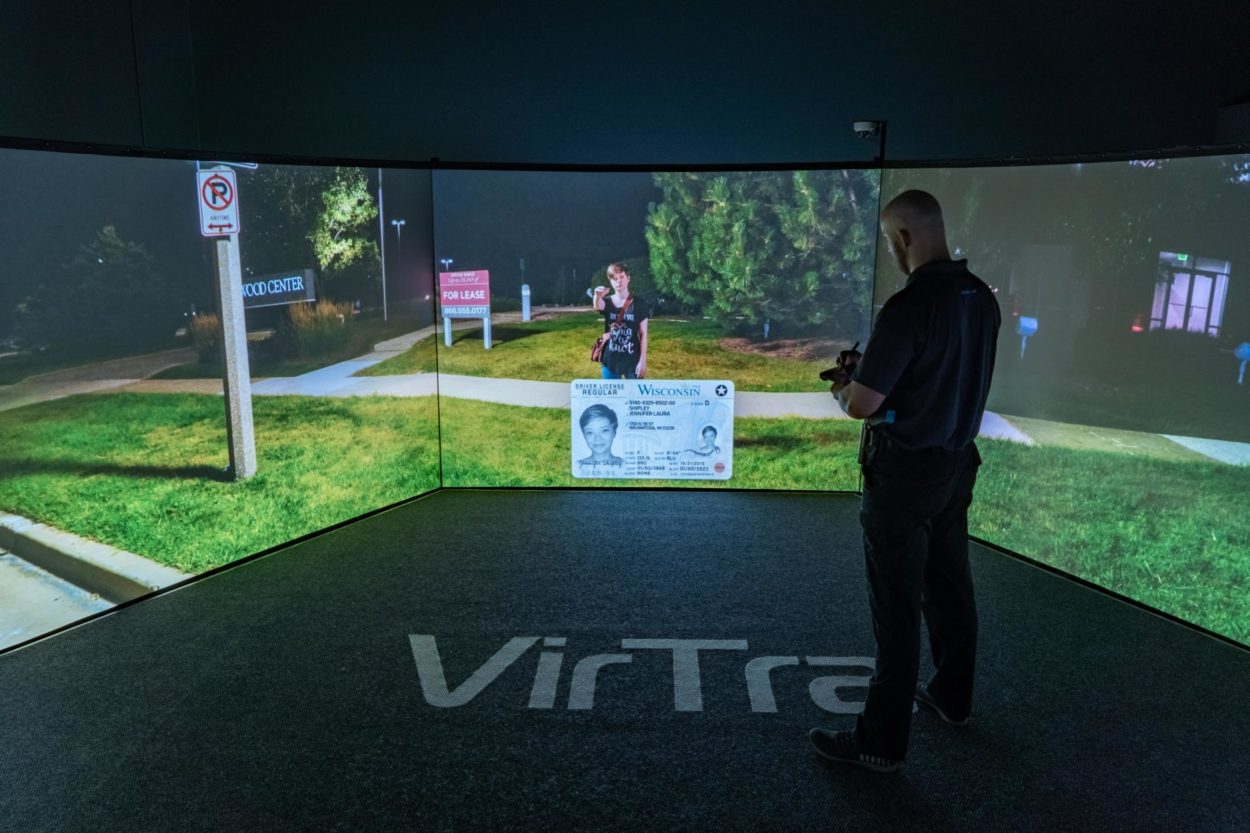
If your agency has been looking at simulation as a training option for officers, trainees, or both, you may have noticed that there are several different kinds available. They have different capabilities, sizes, shapes, features, and many more variables. It may seem overwhelming when there are so many different options in front of you, especially due to the immense importance of having a well-trained squad.
You will immediately notice that not all training simulators are created alike. They range from small to large, multi-screen to single-screen, and even headset-based solutions. Research must be done based upon your needs as a department and the needs of your officers and recruits.
Focus on the content
Shiny new technology is great, but it does not ensure learning transferability. Content – from scenarios to ranges – is what truly must be interactive and high quality. After all, it must replicate and mirror what officers may experience in the real world for them to be prepared. When content is filmed in a low-quality manner or displayed as unrealistic CGI, trainees will not feel immersed and are less likely to take the simulation seriously.
Good content also means that scenarios cannot be shallow and only provide “shoot-don’t-shoot” options. While the distinction between when to use force and what kind is important, it cannot be the only lesson learned. Officers should be able to practice verbal de-escalation, working with a mentally ill subject, tourniquet application during an active threat, and others.
Simulation training is effective and engaging
Textbook learning and classroom lecture do not allow officers to absorb the information as effectively as actually being in a situation and forced to make split-second decisions. In a simulated environment, disbelief should be suspended and cause the user to experience similar stress levels to reality. Stress can cause people to become flustered and unsure, which they will need to work through. Can listening to a lecture about active shooters do that? Maybe, but not as effectively as going through a simulation would.
VirTra ensures content has training value by getting it NCP-certified through IADLEST. All 80+ hours of V-VICTA® content have gotten the NCP certification which is accepted by POST in 36 states. The writing of manuals, presentations, testing material, and more not only saves time, but passed a rigorous review process to prove its usefulness.
Safety is always paramount
Even though users’ adrenaline goes up and heart rates increase, simulator training is very safe. Even trainees who have yet to experience life on the police force can safely make mistakes in the training room. This allows them to hone their skills and be better prepared in real life situations.
Not only do scenarios take place in the training room within a controlled environment, but they do not require any sort of ammunition. For example, VirTra’s recoil kits and CO2 magazines provide lifelike recoil to an officer’s duty weapon without the dangers of projectiles. Duty weapons are converted to laser-based, CO2 powered training tools that fire nothing but a laser.
VirTra considers all possibilities when engineering hardware in order to provide not only an effective experience, but a safe one. Even the electric V-Threat-Fire® consequence device for VirTra simulator use has been extensively tested to ensure safety.
Screen-based systems don’t have to be unaffordable
There is a common misconception that screened simulators are costly and outdated. While the technology involved is advanced and impressive, there are options designed to ease the stress on your finances.
Firstly, many agencies have looked towards law enforcement training grants. Certain websites allow tracking of upcoming grants as well as the conditions that must be met to obtain them. Agencies around the country have received thousands of dollars towards the purchase of a simulator in this manner. In fact, VirTra has partnered with PoliceGrantsHelp to provide grant assistance to law enforcement. You can get a free 1-hour consultation with a grant expert and let them do all the heavy legwork.
VirTra also offers a special program. The Subscription Training and Equipment Partnership – known as S.T.E.P. – gives you the option of an annual subscription-based plan. It is fully customizable and includes a service plan that will keep your system running smoothly with up-to-date content. If you no longer wish to continue using the system or are not satisfied with it, the VirTra team will pick it up.
If you would like to know how simulation training will help your department and are considering getting started, contact a specialist.
Recently Published
Join Our Newsletter







